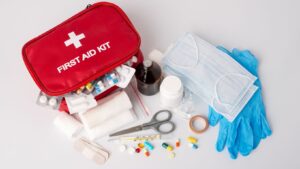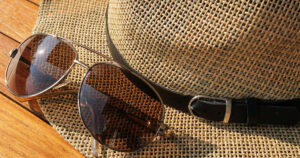Managing the bugs on your outdoor adventure
When travelling, encountering wildlife is often part of the adventure. While many destinations don’t have large predators like bears or big cats, smaller creatures can still pose challenges. Biting insects and ticks, for instance, are common nuisances across many regions. Here’s how you can prepare for and manage these encounters to ensure your travels remain enjoyable.
Dealing with Biting Bugs
Biting insects can be a significant annoyance during your travels. Their incessant buzzing and the itching from their bites are unwelcome distractions. Here are some tips to help you avoid bites and manage them if they occur:
Top Tips for Avoiding Bites
Apply Insect Repellent:
Insect repellent is essential if you plan to spend time outdoors in areas with biting insects. Products containing DEET are generally the most effective, but they can cause side effects such as rashes and tingling, so use with caution. Natural repellents with ingredients like citronella, lavender, lemon, and eucalyptus are popular alternatives. Apply repellent to exposed skin and consider carrying a bottle with you, sealed in a bag to prevent leaks. Some travellers find that spraying repellent on hats or rucksacks can deter insects, but be careful with DEET as it can damage synthetic fabrics.
Cover Up:
Wearing long-sleeved clothing and trousers can help protect your skin from both the sun and biting insects. Opt for loose-fitting, light-coloured clothing as insects are less attracted to these colours. A light spritz of repellent over your clothes can provide added protection.
Avoid Insect-Prone Areas:
Biting insects are often more abundant in shady areas like woodlands, near hedgerows, long grass, and close to water, especially at dawn or dusk. Try to avoid these areas, particularly when stopping for breaks or meals.
Can Food Help Prevent Bites?
There are some beliefs that certain foods can make you less attractive to insects. Consuming B vitamins, garlic, Marmite, and even Guinness is said to repel biting bugs, while bananas might make you more appealing. Though there’s no scientific proof, experimenting with your diet could yield surprising results.
Dealing with Stings
Stinging insects such as bees and wasps use venom as a defence mechanism. Reactions to stings can vary from mild to severe.
Treating Stings:
- Remove the Sting: Scrape it out sideways with a hard-edged object like a bank card.
- Wash the Area: Use soap and water to clean the sting site.
- Apply a Cold Compress: This can help reduce swelling.
- Elevate the Area: If possible, elevate the stung area to further reduce swelling.
- Avoid Scratching: This can worsen the irritation and risk of infection.
Avoid traditional home remedies like vinegar and baking soda, as they are unlikely to help. If you develop severe reactions or symptoms of anaphylaxis, seek immediate medical attention.
Ticks and Lyme Disease
Ticks can carry Lyme Disease, a rare but serious condition. After outdoor activities, especially in summer and autumn, check your skin for ticks.
Symptoms of Lyme Disease:
- A rash that appears 3-30 days after a bite, often looking like a bull’s-eye.
- Fever, chills, headaches, stiff neck, fatigue, muscle aches, and joint pain.
- In rare cases, it can affect the heart, joints, and nervous system.
What to Do if You Find a Tick:
- Remove the Tick: Use tweezers to grip close to the skin and pull it out gently.
- Wash the Area: Clean with soap and water.
- Monitor for Symptoms: If you develop a rash or other symptoms, consult a doctor.
General Advice
Avoid Scratching: Itching can make symptoms worse and introduce infection. Wash the Area: Use antibacterial soap and cool water to prevent infection. First Aid: Keep ‘after-bite’ ointments, alcohol wipes, and antihistamines in your first aid kit. Mild hydrocortisone cream can help if the skin is not broken or infected.
Anaphylaxis:
Severe reactions are rare but require immediate medical attention.
Disclaimer:
Remember, this information is general advice. Always seek professional medical attention if you have concerns following a sting or a bite.
Enjoy your travels and stay safe!




